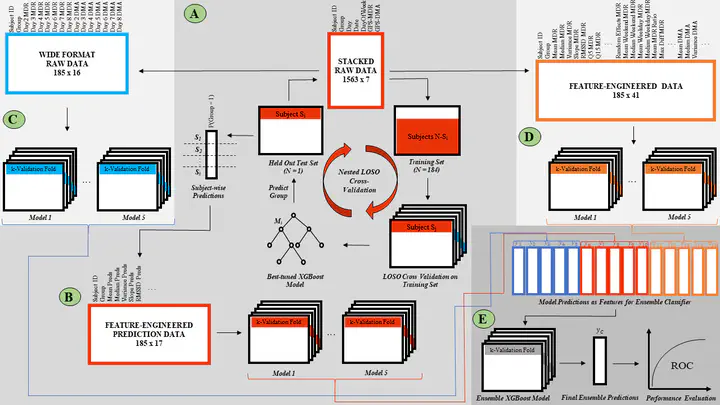Using artificial intelligence and longitudinal location data to differentiate persons who develop posttraumatic stress disorder following childhood trauma

Abstract
Post-traumatic stress disorder (PTSD) is characterized by complex, heterogeneous symptomology, thus detection outside traditional clinical contexts is difficult. Fortunately, advances in mobile technology, passive sensing, and analytics offer promising avenues for research and development. The present study examined the ability to utilize Global Positioning System (GPS) data, derived passively from a smartphone across seven days, to detect PTSD diagnostic status among a cohort (N = 185) of high-risk, previously traumatized women. Using daily time spent away and maximum distance traveled from home as a basis for model feature engineering, the results suggested that diagnostic group status can be predicted out-of-fold with high performance (AUC = 0.816, balanced sensitivity = 0.743, balanced specificity = 0.8, balanced accuracy = 0.771). Results further implicate the potential utility of GPS information as a digital biomarker of the PTSD behavioral repertoire. Future PTSD research will benefit from application of GPS data within larger, more diverse populations.